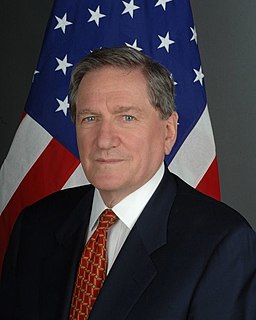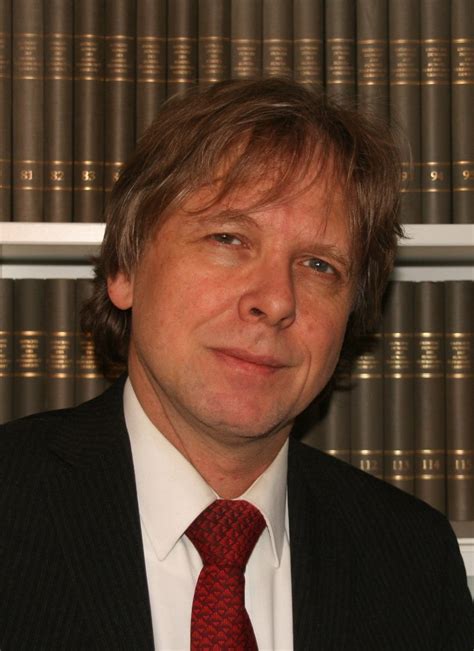A Quote by Richard Holbrooke
You have to test your hypothesis against other theories. Certainty in the face of complex situations is very dangerous.
Related Quotes
However the machine would permit us to test the hypothesis for any special value of n. We could carry out such tests for a sequence of consecutive values n=2,3,.. up to, say, n=100. If the result of at least one test were negative, the hypothesis would prove to be false; otherwise our confidence in the hypothesis would increase, and we should feel encouraged to attempt establishing the hypothesis, instead of trying to construct a counterexample.
I do not yet want to form a hypothesis to test, because as soon as you make a hypothesis, you become prejudiced. Your mind slides into a groove, and once it is in that groove, has difficulty noticing anything outside of it. During this time, my sense must be sharp; that is the main thing - to be sharp, yet open.
Facts and theories are different things, not rungs in a hierarchy of increasing certainty. Facts are the world's data. Theories are structures of ideas that explain and interpret facts. Facts do not go away while scientists debate rival theories for explaining them. Einstein's theory of gravitation replaced Newton's, but apples did not suspend themselves in mid-air pending the outcome.
But I should be very sorry if an interpretation founded on a most conjectural scientific hypothesis were to get fastened to the text in Genesis... The rate of change of scientific hypothesis is naturally much more rapid than that of Biblical interpretations, so that if an interpretation is founded on such an hypothesis, it may help to keep the hypothesis above ground long after it ought to be buried and forgotten.
When you're operating on uninvestigated theories of what's going on and you aren't even aware of it, you're in what I call "the dream." Often the dream becomes troubling; sometimes it even turns into a nightmare. At times like these, you may want to test the truth of your theories by doing The Work on them. The Work always leaves you with less of your uncomfortable story. Who would you be without it? How much of your world is made up of unexamined stories? You'll never know until you inquire.
Our minds are specifically adapted to developing certain theories, and we have a science if the theories that are available to our minds happen to be close to true. Well, there is no particular reason to suppose that the intersection of true theories and theories that are accessible to the mind is very large. It may not be very large.
People are looking for certainty. The more complex the world becomes, the more people look for people to give them certainty and tell them what to do. During the past few years of actively thinking about this, there is one thing that I have accepted: certainty is not out there. There is not one strategy to follow, and that's OK.
The Principle of Tolerance, fixed once for all the realization that all knowledge is limited. It is an irony of history that at the very time when this was being worked out, there should rise, under Hitler in Germany and other tyrants elsewhere, a counter-conception: a principle of monstrous certainty. When the future looks back on the 1930's, it will think of them as a crucial confrontation of culture as I have been expounding it - the ascent of man against the throwback to the despots' belief that they have absolute certainty.
One can't say how one behaved or why, really. Such situations, they are far more complex than any either/or proposition. It is simplistic to produce events in pairs and lean them against each other like cards. I suppose if you a playing go or shogi, then such a thing might be helpful, but that is not life.




































